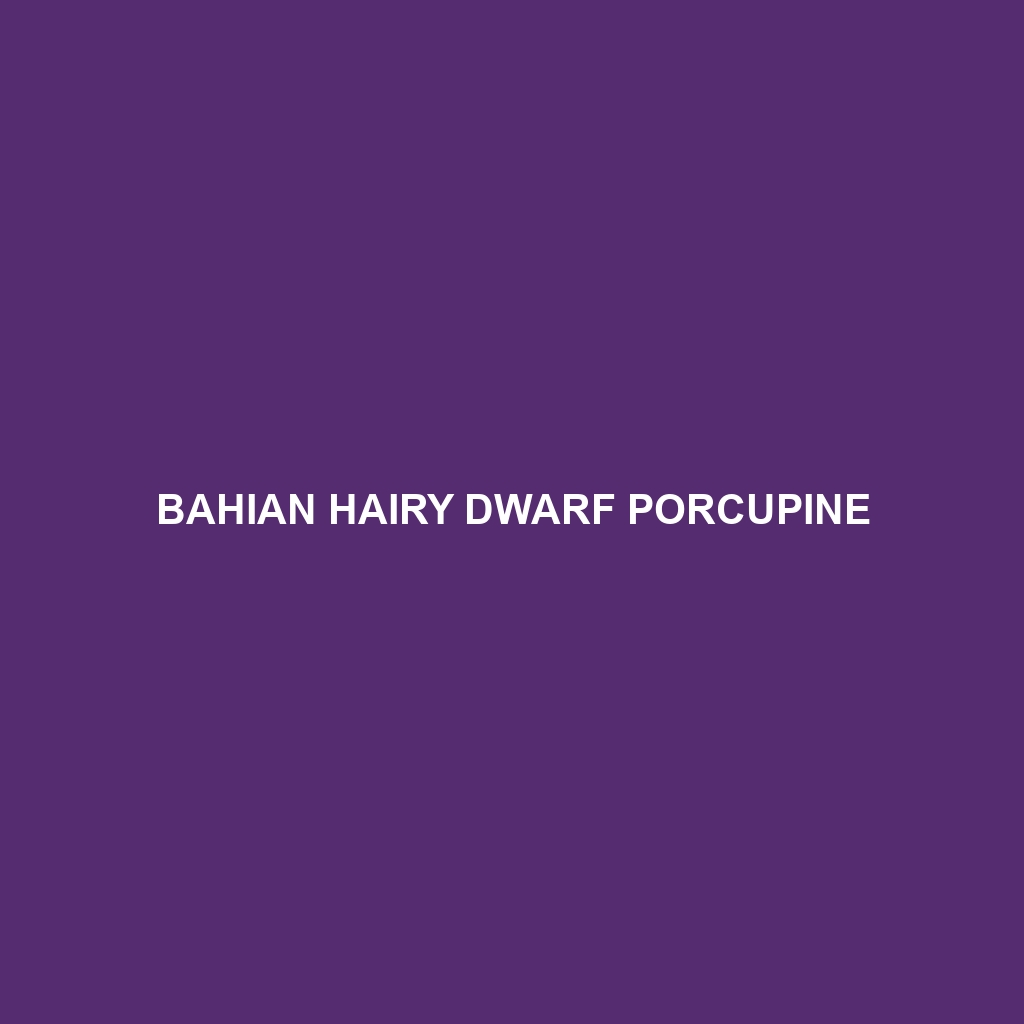Bahian Hairy Dwarf Porcupine
Common Name: Bahian Hairy Dwarf Porcupine
Scientific Name: Coendou insidiosus
Habitat
The Bahian Hairy Dwarf Porcupine is primarily found in the coastal forests and semi-arid regions of Brazil, particularly in the states of Bahia and Minas Gerais. This species thrives in tropical and subtropical environments, favoring dense, lush vegetation where it can find ample cover and food sources.
Physical Characteristics
This small rodent typically measures between 35 to 50 cm in length, excluding its tail. The Bahian Hairy Dwarf Porcupine is characterized by a dense coat of spiny quills that vary in color from dark brown to chestnut. Its stout body, short legs, and well-developed prehensile tail are distinctive features, making it adept at climbing trees where it often resides.
Behavior
Bahian Hairy Dwarf Porcupines are primarily nocturnal and solitary creatures. They exhibit a range of behaviors including climbing and foraging at night. These porcupines are known for their ability to remain still and camouflage within the foliage, often becoming more active after sunset. Communication between individuals is usually through vocalizations and scent marking.
Diet
The diet of the Bahian Hairy Dwarf Porcupine is primarily herbivorous, consisting of leaves, fruit, nuts, and bark. Known for their strong jaws, they can gnaw through tough plant material, allowing them to access a variety of feeding sources in their natural habitat. Their feeding habits play a critical role in maintaining the health of their ecosystem.
Reproduction
The breeding season for the Bahian Hairy Dwarf Porcupine typically occurs during the rainy season, which provides better resources for the young. Females usually give birth to a single offspring after a gestation period of around 90 days. The young porcupines are precocial, meaning they are relatively mature and mobile shortly after birth, aiding in their survival.
Conservation Status
The Bahian Hairy Dwarf Porcupine is currently listed as vulnerable due to habitat loss from deforestation and urban development. Conservation efforts are crucial to protect this unique species from further decline and to ensure its survival in the wild.
Interesting Facts
One fascinating fact about the Bahian Hairy Dwarf Porcupine is its ability to curl into a ball when threatened, using its quills as a defense mechanism. Additionally, unlike other porcupine species, they have a unique social structure that allows for limited interaction with others of their kind.
Role in Ecosystem
As herbivores, Bahian Hairy Dwarf Porcupines play an integral role in their ecosystem by aiding in seed dispersal and controlling plant growth. Their foraging behavior helps to maintain the biodiversity of their habitat, benefiting other species that rely on the same food sources and environments.
